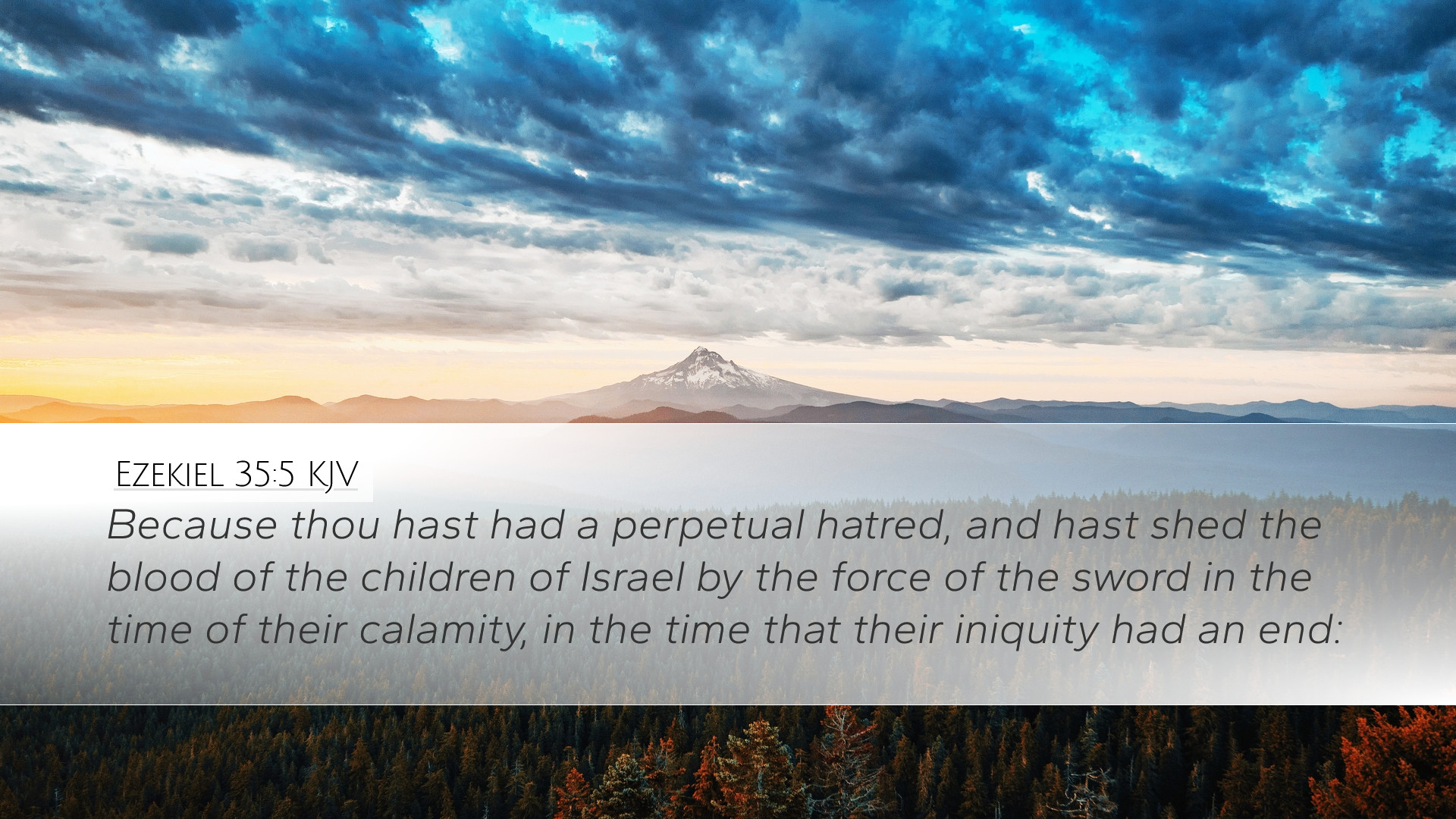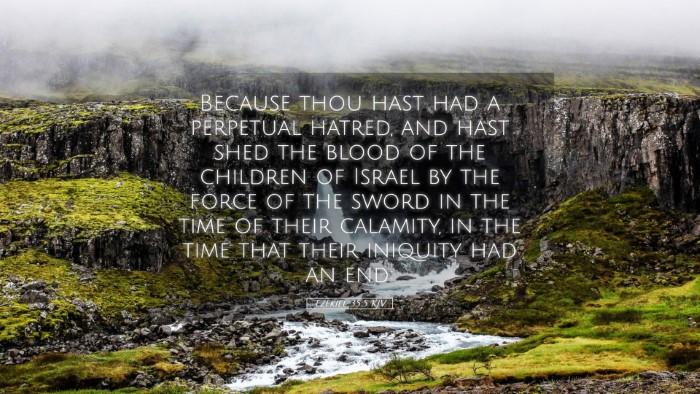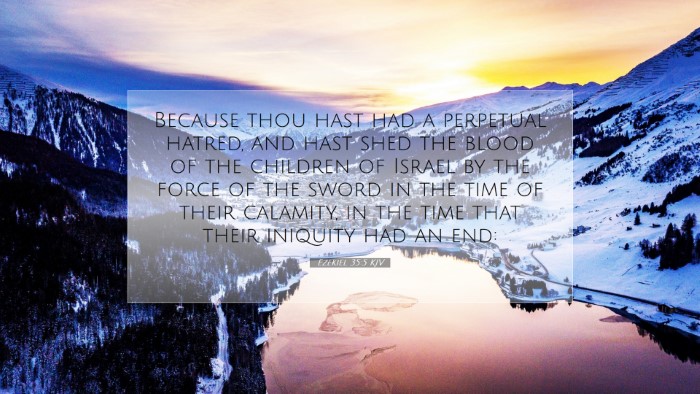Bible Commentary on Ezekiel 35:5
Verse Reference: Ezekiel 35:5 (KJV) - "Because thou hast had a perpetual hatred, and hast shed the blood of the children of Israel by the force of the sword in the time of their calamity, in the time of their iniquity had an end."
Introduction
This commentary seeks to explore the depths of Ezekiel 35:5, synthesizing insights from renowned public domain Bible commentaries. Understanding this verse's historical context, thematic significance, and practical implications enriches our interpretation, providing profound insights for pastors, students, theologians, and scholars.
Historical Context
Ezekiel, a prophet during the Babylonian exile, addresses the judgment and restoration of Israel. Chapter 35 specifically targets Mount Seir, representing Edom, a nation historically oppressing Israel. The Edomites' actions during Israel’s sieges exemplify an enduring enmity—they not only rejoiced over Israel’s misfortunes but also took part in the violence against them.
Thematic Analysis
This verse encapsulates several major themes:
- Perpetual Hatred: The Edomites' hatred towards Israel was not a mere emotional response; it was a deep-rooted, continual animosity that persisted through generations.
- Shed Blood: The imagery of shedding blood speaks to the violent aggression that Edom employed against Israel. This is emblematic of their lack of compassion and the severity of their actions.
- Calamity and Iniquity: The timing of their actions during Israel’s calamities highlights the nature of sin, suggesting that the moment of vulnerability is when wickedness often flourishes.
Commentary Insights
Matthew Henry
Matthew Henry emphasizes the "perpetual hatred" of the Edomites, noting its roots in pride and historical grievances. Their rejoicing over the downfall of Israel reflected not just joy in their suffering but an alignment with wickedness. Henry warns that such enmity draws divine judgment; God's justice is not oblivious to the actions taken against His people.
Albert Barnes
Barnes expands on the idea that the Edomites’ aggression during Israel’s calamity illustrates a violation of moral law. He interprets this as reflective of their character—a nature that thrives on discord and destruction. He insists that the divine judgment proclaimed in this verse serves as a reminder that God holds nations accountable for their treatment of others, especially His chosen people.
Adam Clarke
Clarke elucidates the significance of "the time of their iniquity." He posits that God's allowance of calamity among His people does not grant permission to others to act maliciously. Clarke highlights that Edom's actions resulted from their choice to exploit Israel's vulnerabilities, and thus they are particularly culpable. He stresses the inviolable principle that every nation will face recompense for its actions against God’s people.
Practical Implications
For modern readers, Ezekiel 35:5 prompts reflection on several key points:
- The Nature of Hatred: The bind of hatred can lead to grave consequences. Individuals and nations must examine their hearts concerning animosities they harbor against others.
- Responsibility to the Vulnerable: As believers, there is a divine calling to defend and uplift the marginalized rather than take advantage of their weaknesses.
- God’s Justice: This verse serves as a reminder that God’s justice is inevitable. Those who perpetrate evil will not escape accountability, encouraging faithfulness amidst trials.
Conclusion
Ezekiel 35:5 stands as a sobering reminder of the consequences of hatred and violence against God’s people. Through the insights of Matthew Henry, Albert Barnes, and Adam Clarke, we glean a deeper understanding of the historical enmity exemplified by Edom and its implications for our moral conduct today. As we meditate on this passage, let us commit to fostering love and peace, rejecting the animosity that can so easily take root in our hearts.


